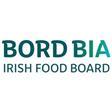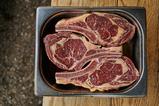Bord Bia – The Irish Food Board – UK meat marketing specialist, Emmet Doyle answers questions on Irish Beef’s new TV campaign and the importance of sustainability to Irish livestock farming.
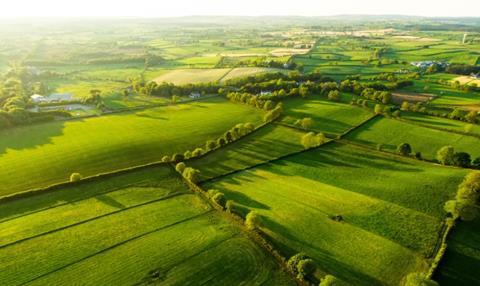
Q. How is the desire for sustainability being reflected in consumers’ buying decisions?
Sustainability is increasingly influencing buying decisions. During the pandemic seven in 10 British adults made an effort to purchase more sustainable products and, interestingly, there is also a growing belief amongst consumers that everyone needs to play their part in making more sustainable choices.

When it comes to beef, we are seeing a trend in consumers looking for natural, sustainable and high-quality products. Within sustainability, it is the welfare of the animal as well as the environment which has the most significant influence on consumers’ grocery shopping. According to data from the 2021 Meat Shopper Insight Report, 30% of consumers are willing to pay a premium for beef with high welfare standards.
Demand for grass fed beef is also growing in importance to UK shoppers. It was the third strongest motivator for future purchases, right behind value for money and beef which is ethically reared. Interestingly, it is also one of the main ways in which shoppers define better quality beef.
Q. How are beef producers in Ireland meeting the demand for sustainable food systems?
For close to 30 years Ireland has had farm assurance schemes to help ensure the quality, consistency and traceability of Irish beef. In 2017, the Bord Bia Quality Assurance Scheme was relaunched as the Sustainable Beef Lamb Assurance Scheme (SBLAS), which was developed in response to demands for sustainably produced meat in the marketplace.
SBLAS works to reduce Irish beef’s environmental impact by adopting more sustainable farm management approaches, as well as ensuring animal welfare is at the heart of the grass-based production system. As part of the Scheme, 800 farms each week are audited on several measures to help farmers to be as environmentally friendly and sustainable as possible.
The launch of a Grass Fed Standard for Irish beef in 2020 also positions Ireland strongly in the natural space in the market by providing verified proof of the grass fed nature of our products. The on-farm measuring and feedback helps to identify steps to increase efficiency. An increasing number of Irish farmers are recognising that improved sustainability practices are good for business too.
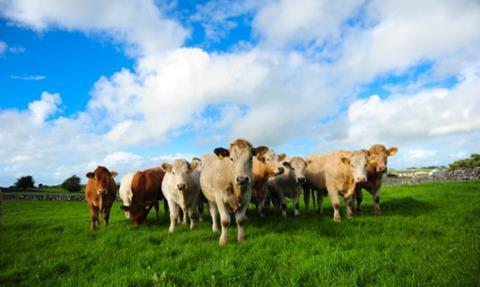
Q. What is it that makes Irish beef so special?
It’s a combination of many things. Ireland’s lush green pastures and mild, wet climate provide a natural advantage for farmers as they are ideally suited to grass-based production systems. In fact, our mild climate means Ireland has the longest grazing season in the Northern Hemisphere. Our strong farming heritage, love of livestock farming and how important the food industry is to Ireland as our largest indigenous sector are all significant factors.
As an island of five million people we produce enough food and drink for 25 million globally. We export 90% of our beef production and as such, we need to ensure that our product is of the highest quality to compete on the global stage. It’s down to the quality of our beef supply chain, beginning on farm and right through to processing and delivery. In 2020, 80% of UK imports of beef was Irish and over two-thirds of the UK population consider Irish beef as local. In fact, 88% of UK shoppers would purchase Irish beef, based on its high quality, flavour and trust consumers have in beef from Ireland.
Q. How is Bord Bia helping to communicate Irish beef’s environmental credentials to consumers?
Bord Bia’s promotional activities have a heavy focus on emphasising the quality and sustainability standards of our Irish programme through our assurance schemes and Origin Green, our national food and drink sustainability programme. They allow us to further cement Irish beef’s position based on the equivalence in British and Irish farming and processing quality standards.
Last October, Bord Bia launched the first ever Irish beef TV campaign in the UK with the aim of leveraging this ‘local’ perception of Irish beef. Airing during the high profile ITV breakfast period, the ‘It’s All Right Here’ campaign is an opportunity to showcase Ireland’s high standards in grass fed production systems and highlight the tradition and care of Irish farmers with consumers across the UK. This year, we will be running the campaign again, with an estimated reach of 11.8 million and delivering 29 million impressions.
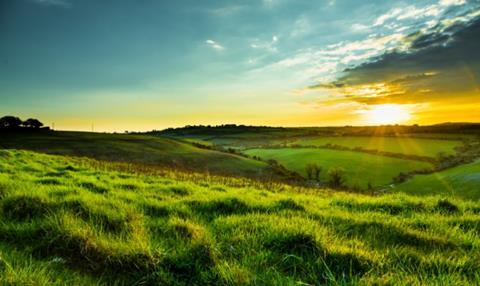
Q. In what other ways is Irish beef production moving towards a greener future?
In 2012, Bord Bia launched Origin Green, the only sustainability programme of its kind in the world. Origin Green works across the supply chain with farmers signed up to the sustainability farm assurance schemes across all proteins and dairy, while Irish manufacturers sign up to sustainability charters, which are independently verified.
Earlier this year, Bord Bia launched the ‘Pathway to Net Zero’ which builds on several Origin Green initiatives already in place, such as the Origin Green Sustainability Charter. The Charter requires members to set and deliver on clear targets as part of their five-year sustainability plans with a specific focus on raw material sourcing, manufacturing process and social sustainability. These plans are also monitored annually and independently verified by Mabbett.
To date, companies have set over 2,400 sustainability targets, reaffirming the industry’s commitment to continuous improvement. Over a five-year period, the duration of a firm’s sustainability plan, food and drink manufacturers in Ireland delivered an 11% reduction in energy use per unit of output and a 17% reduction in water use per unit of output.
